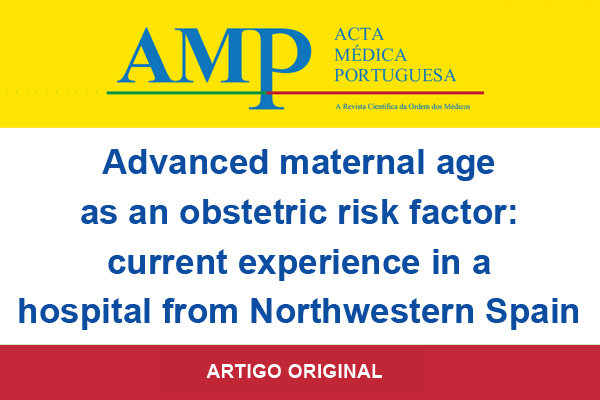SOCIAL MEDIA
Portuguese Medical Association's Scientific Journal

Introduction: Studies updating the evidence in advanced maternal age as an independent factor of obstetric risk are needed. The aim of this study was to determine the prevalence of ≥ 35-years-old pregnant women who give birth in a Spanish hospital in Northwestern Spain, and to describe the incidence of maternal and perinatal morbidity and mortality.
Material and Methods: Retrospective follow-up observational study including women ≥ 20 years-old who gave birth over one year (n = 1378). Data were collected from medical records, including socio-demographic characteristics, comorbidities, gestational conditions, variables related with the delivery and perinatal outcomes. Multivariable logistic regression analysis was performed to determine the association of advanced maternal age with obstetric and perinatal outcomes.
Results: Forty-two percent of pregnant women were ≥ 35 years old. In the multivariable analysis, advanced maternal age was associated with the likelihood of gestational diabetes (OR = 1.84; 95% CI = 1.10 - 3.07), hypothyroidism (OR = 2.11; 95% CI = 1.17 - 3.80), lower probability of an eutocic delivery (OR = 0.74; 95% CI = 0.56 - 0.98), and a hospital admission > four days (OR = 2.91; 95% CI = 1.95 - 4.35). An association with the rate of C-sections was not found (OR = 1.24; 95% CI = 0.89 - 1.72).
Conclusion: A high prevalence of pregnant women of advanced maternal age was confirmed. There was a higher rate of comorbidities and longer hospital admissions in older women but not a higher rate of higher C-sections and other complications.